The Olmec city of Tres Zapotes may have owed its longevity to a new form of government.

On a sweltering day in 1862 at the foot of the Tuxtla Mountains in the Mexican state of Veracruz, a farm worker was clearing a cornfield when he hit something hard and smooth lodged in the earth. He thought it was the rounded base of an iron cauldron buried upside down, and, it being the 1860s, he reported the find to the owner of the hacienda where he worked. The farmworker’s boss told him to dig up the cauldron immediately and bring it to him. As the farm worker labored to uncover the object, he realized he had found not a large iron bowl, but a gargantuan stone sculpture with a pair of glaring eyes, a broad nose, and a down turned mouth. What had appeared to be the base of a cauldron was actually the top of a helmet worn by the glowering figure. What the farm worker had unearthed was a colossal Olmec head, one of the first clues to the existence of that ancient culture.
Over the next century and a half, archaeologists would uncover many more of these heads along the Mexican Gulf Coast and discover the ancient cities where they were carved. The site of that first fateful discovery became known as Tres Zapotes, after a type of fruit tree common in the area. Along with the sites of San Lorenzo and La Venta, Tres Zapotes was one of the great capitals of the Olmec culture, which emerged by 1200 b.c. as one of the first societies in Mesoamerica organized into a complex social and political hierarchy.
هذه القصة مأخوذة من طبعة March/April 2017 من Archaeology.
ابدأ النسخة التجريبية المجانية من Magzter GOLD لمدة 7 أيام للوصول إلى آلاف القصص المتميزة المنسقة وأكثر من 9,000 مجلة وصحيفة.
بالفعل مشترك ? تسجيل الدخول
هذه القصة مأخوذة من طبعة March/April 2017 من Archaeology.
ابدأ النسخة التجريبية المجانية من Magzter GOLD لمدة 7 أيام للوصول إلى آلاف القصص المتميزة المنسقة وأكثر من 9,000 مجلة وصحيفة.
بالفعل مشترك? تسجيل الدخول
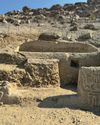
ORIGINS OF PERUVIAN RELIGION
While investigating looters' holes at the site of La Otra Banda in northern Peru's Zaña Valley, archaeologist Luis A. Muro Ynoñán of the Field Museum and the Pontifical Catholic University of Peru spotted carved blocks around seven feet below the surface.
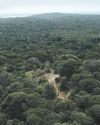
ISLAND OF FREEDOM
Many of the enslaved Africans sent to Brazil beginning in 1549 were from what is now Angola, where one of the most widely spoken languages was Kimbundu.
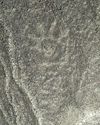
NAZCA GHOST GLYPHS
From the 1940s to the early 2000s, geoglyphs were discovered in the Nazca Desert of southern Peru depicting animals, humans, and other figures at the rate of 1.5 per year.

COLONIAL COMPANIONS
The ancestry of dogs in seventeenth-century Jamestown offers a window into social dynamics between Indigenous people and early colonists.
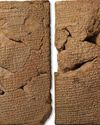
BAD MOON RISING
The British Museum houses around 130,000 clay tablets from ancient Mesopotamia written in cuneiform script between 3200 B.C. and the first century A.D.
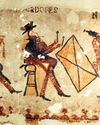
DANCING DAYS OF THE MAYA
In the mountains of Guatemala, murals depict elaborate performances combining Catholic and Indigenous traditions
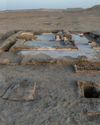
LOST GREEK TRAGEDIES REVIVED
How a scholar discovered passages from a great Athenian playwright on a discarded papyrus

Medieval England's Coveted Cargo
Archaeologists dive on a ship laden with marble bound for the kingdom's grandest cathedrals

Unearthing a Forgotten Roman Town
A stretch of Italian farmland concealed one of the small cities that powered the empire
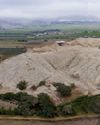
TOP 10 DISCOVERIES OF 2024
ARCHAEOLOGY magazine reveals the year's most exciting finds